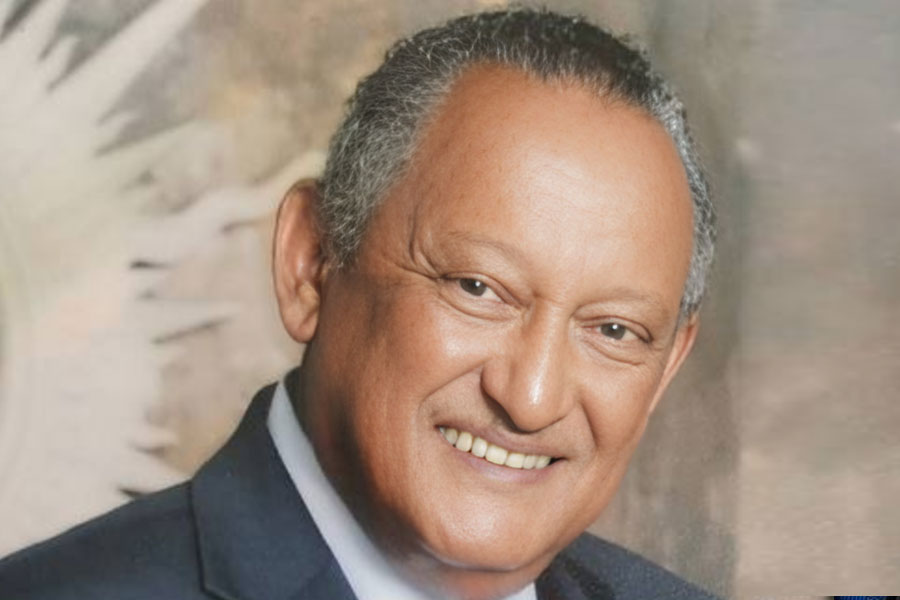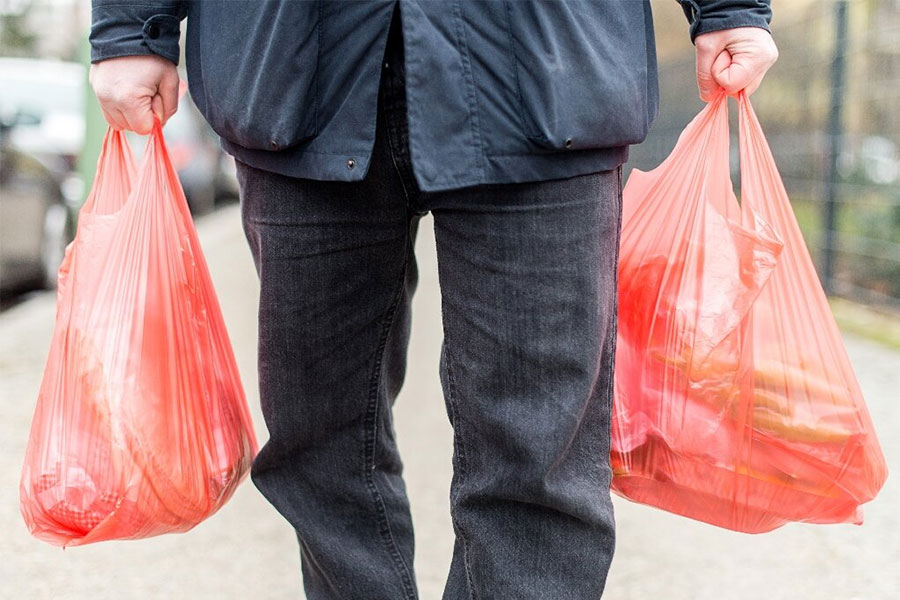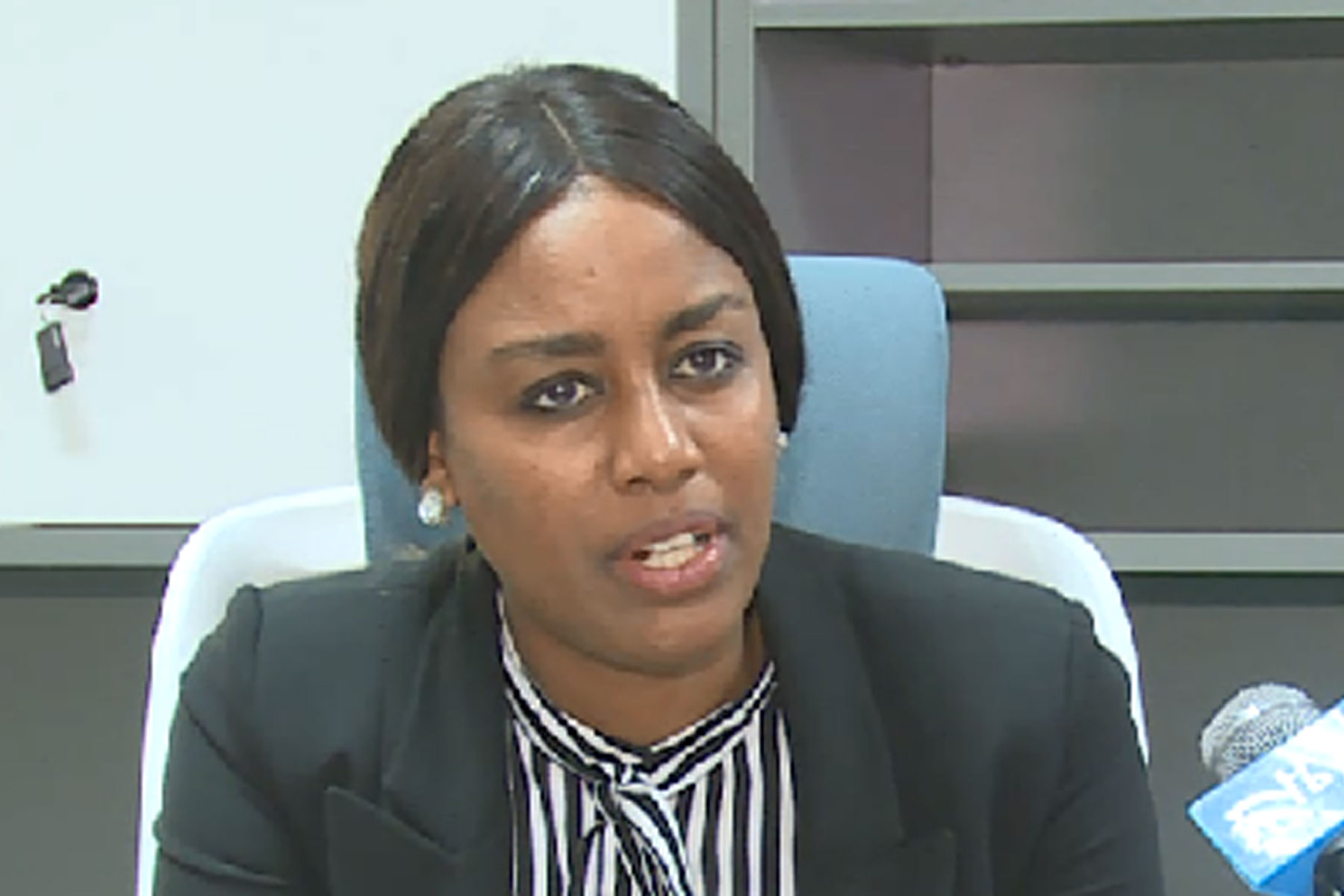
Commentaries | Aug 13,2022
Habiba Nasir was in a hurry to break her day-long fast as it is the month of Ramadan when Muslims refrain from any kind of nourishment before dusk.
Wearing all white and carrying a backpack, she was hiking her way home, contemplating the iftar meal preparation that was waiting for her. Having sustained an accident as a child, one of her legs was left flaccid, impending her from free mobility.
Habiba's usual commute involved taking a three-wheeled vehicle commonly known as Bajaj around Gofa Gebriel Square to the Lebu area until three weeks ago. The mother of one in her late 30s has no choice but to take a long walk as the route is now complicated with two taxi trips to reach her destination.
The Bajajs are nowhere in sight on the main roads following the restriction.
The benefit is lost on Habiba, who is frustrated over the long road taking a toll on her.
"I'm usually exhausted," she told Fortune.
Three weeks ago, the Addis Abeba Transport Bureau headed by Mitiku Asmare adjusted the ban imposed a week prior following protests around the Haile Garment area along with pleas from the Ethiopian Human Rights Commission.
Transport authorities imposed the ban until a "proper regulatory framework" was in place and the relevance of the service was assessed. The adjustment opted to cap fares at five Birr, limit the carrying capacity of passengers to three, restrict their operations to 138 informal routes in the city, and set a curfew at 9PM.
The decision has resulted in a shortage of vehicles and lengthy queues at public transport terminals, impacting the over three million residents who depend on the city's public transport system.
Qera area used to be one of the busiest hubs for the three-wheelers before the new restrictions took place.
Around noon last week, four men were huddled into a small auto rickshaw, squished amongst themselves to watch a video on YouTube on one of their phones lifted up in the front seat. They alternate their phones to share the additional cost of the internet caused by another restriction that prevented Ethiopians from accessing platforms such as YouTube, Facebook, Telegram and TikTok without the use of a VPN.
The young men in their late 20s spend their days idle as they are no longer permitted to operate on the main roads of Addis Abeba.
"We stopped affording lunch," said the four bajaj drivers in unison.
Leykun Beyene, a bajaj driver who used to work on several roads from Qera roundabout to German Square. He came from Gojam area, Amhara Regional State a decade ago, looking for better opportunities.
Leykun got into the transport business two years ago after purchasing his prized possession for 200,000 Br saved from his job as a daily labourer. Since then, he got married and used to take home an average of 500 Br after a long day. He sees no hope of survival in the capital and plans to return to his hometown if the situation remains constant.
"It is a good day if I cover my meals now," he told Fortune. "Most of my friends are leaving the capital and I might follow suit."
Drivers, dismayed over the decision, are opting out of the business while some are contemplating a change of residence.
A former bajaj driver Binyam Gashaw parked his bajaj for the past three weeks claiming that the cost of working is too high to be sustained for any reasonable amount of time. He claims that it costs about 600 Br to fill his bajaj and would take forty trips to break even under the new tariffs.
Overwhelmed with the inflation, Binyam is packing up to leave the capital and return to his home town in Bahir Dar City, Amhara Regional State the following week, as no positive progress seems to be on the horizon.
"They want us off the streets," he told Fortune in exasperation.
The ban was initially imposed to tackle the abuse of the system by specific associations, which, according to Mitiku, were networked from the same background.
There are 9,950 Bajajs under the umbrella of 123 associations. The City Transport Bureau had also announced that these would be the only ones permitted to give services.
Transport authorities estimate the number of vehicles outside the associations at more than seven times the amount suggested by the Bureau.
Two months ago, the City Transport Bureau revealed that around 3,000 buses would be needed in the capital to meet the demand for public transport. It availed the 200 buses that stirred controversy, with the price of each bus close to 19 million Br.
Mitiku had also indicated that his Bureau had no intentions of promoting the rickshaws as they are against the transport roadmap of the City Administration.
Over 650 buses and 9,000 minibuses are estimated to be working in the capital with close to 2,000 buses expected to be sourced from local company Bishoftu Automotive Engineering.
Along with the completion of construction work for an underground smart traffic management centre for a little over 800 million Br, Addis Abeba is oriented towards a more digitized transport sector with no room for rickshaws.
India, the second most populous country in the world with congested metropolitan spaces and 60 million daily Bajaj commuters has taken a different approach. The country has over 1.5 million battery-powered rickshaws with 11,000 hitting the roads daily. The taxi-hailing company Uber which operates in over 72 countries with over 10,000 subsidiaries worldwide has been offering rickshaw services in India since 2015. The Indian Government claims to focus on decreasing the negative impacts of diesel-powered rickshaws with environmentally friendly ones, with over 450,000 electric rickshaws sold last year.
The mismatch between transport availability and passenger demands has intensified, causing commuters to dread their workweeks. It has taken its toll on short commuters that are looking for quick transportation to ease doing their business.
Ashenafi Worku, a broker who works around the Stadium area, has also disrupted his commute. He said that even though it costs him about the same to make his way from Gofa Mebrat Hail condominium to work, having to wait for a taxi is a nuisance he would much rather avoid.
"I'd even pay a little more for convenience," he told Fortune.
The restriction also applies to four-wheeled vehicles which were availed in late 2014 as a pricier but safer alternative. These four-wheeled non-cars are also built by the same Indian company Bajaj; while they have seat belts, a roof and doors.
One owner around the Jemo area says his four-wheel covers 26Km a litre and costs twice as much and should be treated differently.
Reports of crime by perpetrators using the auto rickshaws, along with increased accidents and disruption of the traffic flow were cited as reasons for the impending ban by the Transport Bureau in late December.
The Addis Abeba Traffic Management Bureau is tasked with taking regulatory measures if the rickshaws enter the main roads. Failure to observe these protocols entails a ticket under the fourth class of penalties ranging from a 200 Br ticket to confiscation of driver's licenses at hand for transgressors.
Birhanu Kuma, head of communications at the Bureau observes an improvement in the traffic flow following removing the three-wheelers from the main roads.
"We are putting signs up everywhere," said Birhanu.
While he believes it is too early to conclude a decline in the number of accidents following the absence of rickshaws, he noted the direct proportionality of the high concentration of rickshaws and traffic accidents in certain parts of the capital.
The Bureau also regulates other modes of transportation. However, they are treated to a fuel subsidy and no curfew which seems to be lost for the three-wheelers.
Mamush Dagne, a taxi driver has started to cover a former rickshaw route after their removal from the main roads. He supports the decision by the Transport Bureau, although extending the curfew would serve as an alternative to both the drivers and stranded passengers at night in his view.
"If we are regulated, they should be too," he told Fortune.
In the midst of drivers leaving the capital and residents inconvenienced over transport issues, authorities are barking up to realise digital transformation.
Abebaneh Animaw, communications officer for the Ministry of Transport & Logistics said the 30-year transport roadmap of the country revealed four months ago prioritizes public transport. He believes it is too early to see if special treatment will be given to the four-wheelers, although he supposes that it is unlikely.
Experts on transport management suggest putting out alternatives before restricting a popular mode of transportation throughout the city.
Birhanu Zeleke (PhD), the transport management lecturer at Kotebe Metropolitan University, believes these sorts of measures should be taken gradually. He reasoned that the immense transportation ails of the capital should accommodate any and all means and not worsen the problem.
He fails to see how the decision might aid in easing the transport burden of the capital besides adding most of these drivers to the vast pool of unemployment.
"It is not like they created better options," Birhanu told Fortune.
For Birhanu, the restrictions are limited to aesthetic considerations and he is not quite convinced that the motivation is limited to mere transport issues.
PUBLISHED ON
Apr 09,2023 [ VOL
24 , NO
1197]

Commentaries | Aug 13,2022

Obituary | Jan 28,2023

Editorial | Jul 27,2024

Fortune News | Jul 03,2024

Radar | Jun 07,2025

Fortune News | Apr 28,2024

Featured | Jul 20,2025

Fortune News | Jul 19,2025

Radar | Jun 11,2024

Radar | Jul 17,2022

Dec 22 , 2024 . By TIZITA SHEWAFERAW
Charged with transforming colossal state-owned enterprises into modern and competitiv...

Aug 18 , 2024 . By AKSAH ITALO
Although predictable Yonas Zerihun's job in the ride-hailing service is not immune to...

Jul 28 , 2024 . By TIZITA SHEWAFERAW
Unhabitual, perhaps too many, Samuel Gebreyohannes, 38, used to occasionally enjoy a couple of beers at breakfast. However, he recently swit...

Jul 13 , 2024 . By AKSAH ITALO
Investors who rely on tractors, trucks, and field vehicles for commuting, transporting commodities, and f...

Oct 25 , 2025
The regulatory machinery is on overdrive. In only two years, no fewer than 35 new pro...

Oct 18 , 2025
The political establishment, notably the ruling party and its top brass, has become p...

Oct 11 , 2025
Ladislas Farago, a roving Associated Press (AP) correspondent, arrived in Ethiopia in...

Oct 4 , 2025
Eyob Tekalegn (PhD) had been in the Governor's chair for only weeks when, on Septembe...